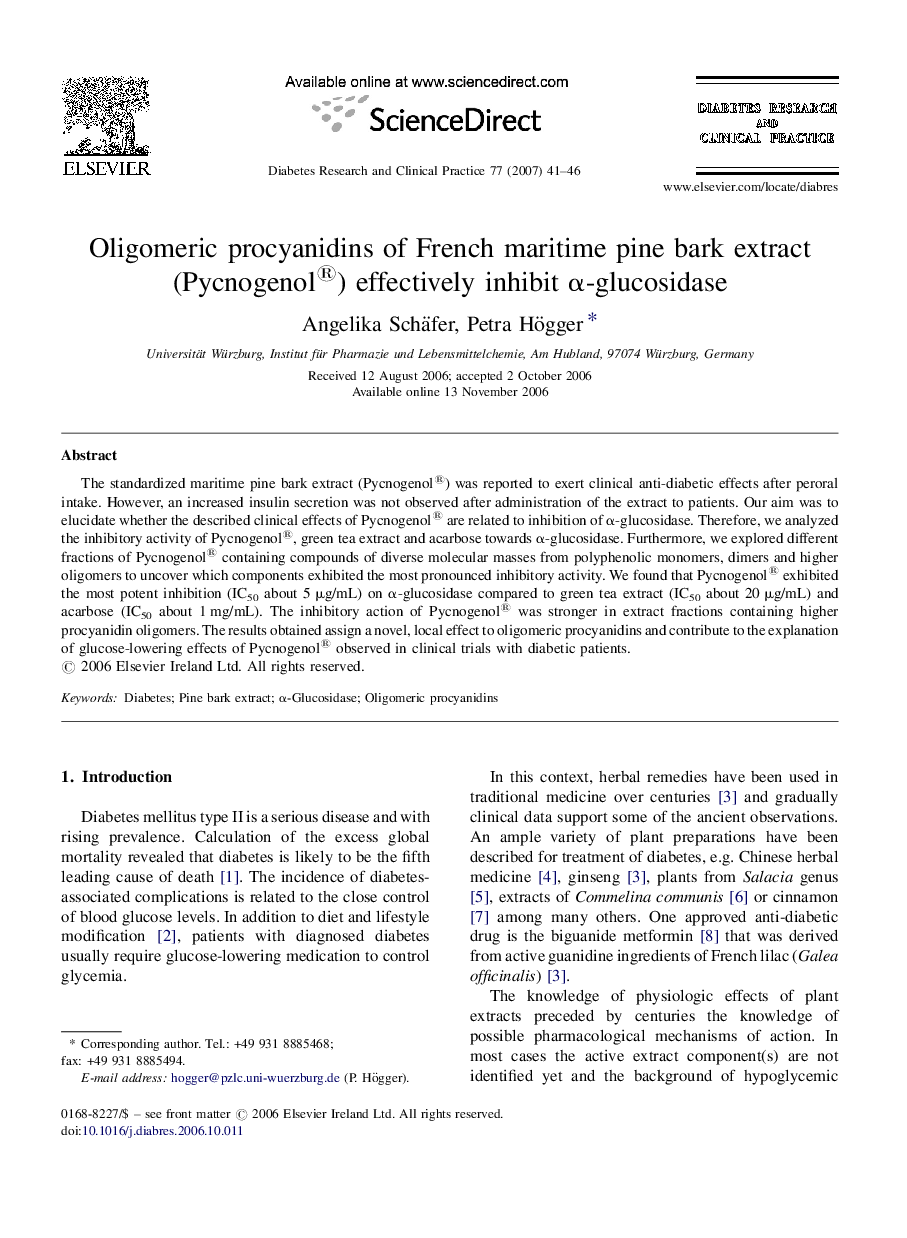| Article ID | Journal | Published Year | Pages | File Type |
|---|---|---|---|---|
| 2798823 | Diabetes Research and Clinical Practice | 2007 | 6 Pages |
The standardized maritime pine bark extract (Pycnogenol®) was reported to exert clinical anti-diabetic effects after peroral intake. However, an increased insulin secretion was not observed after administration of the extract to patients. Our aim was to elucidate whether the described clinical effects of Pycnogenol® are related to inhibition of α-glucosidase. Therefore, we analyzed the inhibitory activity of Pycnogenol®, green tea extract and acarbose towards α-glucosidase. Furthermore, we explored different fractions of Pycnogenol® containing compounds of diverse molecular masses from polyphenolic monomers, dimers and higher oligomers to uncover which components exhibited the most pronounced inhibitory activity. We found that Pycnogenol® exhibited the most potent inhibition (IC50 about 5 μg/mL) on α-glucosidase compared to green tea extract (IC50 about 20 μg/mL) and acarbose (IC50 about 1 mg/mL). The inhibitory action of Pycnogenol® was stronger in extract fractions containing higher procyanidin oligomers. The results obtained assign a novel, local effect to oligomeric procyanidins and contribute to the explanation of glucose-lowering effects of Pycnogenol® observed in clinical trials with diabetic patients.
